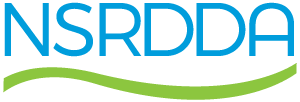The Nova Scotia Dental Association (NSDA) has informed the Provincial Dental Board (PDBNS) that some dental offices are down to their last few boxes of dental masks as the coronavirus has caused short supplies of these everywhere. The NSDA feels that at some point in the coming weeks, offices will possibly be calling the NSDA to ask whether they should practice dentistry without them, or close until masks can be found. The NSDA asked for the Board’s assistance regarding the message to dentists with concerns.
In response, a review of the NSDA Infection Prevention and Control (2013) Guidelines was performed. The NSDA IPAC (2013) Guideline is the practice standard that PDBNS adopted for dentists and Registered Dental Assistants to abide by. All registrants are strongly urged to review the NDSA IPAC (2013) document and to be up-to-date with the current bulletins posted by PDBNS, NSDA, the Province of Nova Scotia, Health Canada, and the Public Health Agency of Canada.
The point that dentists must understand from the IPAC Guidelines is that it is the dentist’s obligation to ensure that the necessary IPAC procedures are being performed and that a key determinant in how this is performed is through risk assessment. In light of the coronavirus outbreak the opinion of many public health officials is that there is increasing risk. The IPAC Guidelines state that a risk assessment must first be performed for a patient and from that assessment the dentist would make a decision about whether or not to treat the patient. When treating a patient, the dentist has some autonomy in implementing IPAC protocols, i.e. the “should” categories. The dentist is required to adhere to the “must” categories. In the case of wearing masks (“should”
category) there would be very few situations where dentists and Registered Dental Assistants would not wear a mask when delivering care to a patient regardless of coronavirus risk.
Key points in the NSDA IPAC (2013) document are:
NSDA Infection Prevention and Control Guidelines (2013)
1. Dentists have an obligation to maintain the standards of practice of the profession and, accordingly, must ensure that recommended infection prevention and control procedures are carried out in their offices. (page 7)
2. The words “must” and “should” are used throughout this document: “Must” indicates the minimum standards that are mandatory. “Should” indicates a recommendation that is not mandatory. (page 6)
3. The first step in the effective use of Routine Practices is to perform a risk assessment. This must be done before each interaction with the patient in order to determine the interventions that are required to prevent the transmission of infection. (page 10)
4. Masks: Appropriate masks that cover the nose and mouth should be worn during dental procedures to protect the respiratory mucosa of DHCPs from contact with potentially contaminated droplet material. Masks lose efficiency over time, as they become moist from the DHCP’s breathing. Accordingly, masks should be changed between each patient or sooner if they become visibly soiled. Face shields are not an appropriate substitute for masks. (page 20)
